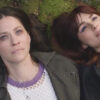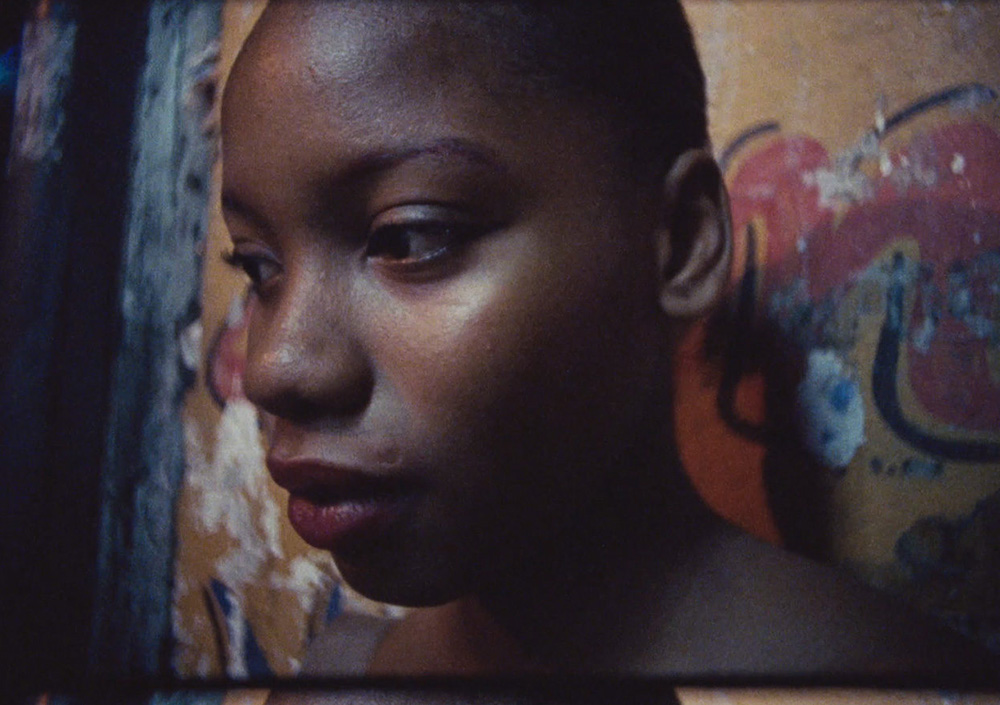At a relatively early point in Khalik Allah’s mesmerizing new film “Black Mother,” you hear a man describing the spread of Christianity in Jamaica as an organizing tool for a fractured civilization, one that’s never had autonomy since being colonized by the British who didn’t give up control over the region until well into the 20th century. “Because we’re spiritual, we get caught up in religion,” the man laments, his words out of sync literally with what you see on screen by design, but not thematically as a cascade of soulful portraiture from the streets of Jamaica and the countryside floods the screen, a distinctive style that Allah previously applied to his previous work “Field N****s,” about a street corner in Harlem where the mix of old and young telling stories reflected the burdens of a past they had no hand in continuing to shape their lives in ways they’re both conscious and unconscious of.
Keeping the interview subjects largely anonymous as they speak while presenting them with such dignity visually, there’s an acknowledgment of a rich shared history, albeit one filled with oppression, yet a welcome destruction of the notion that there is a monolithic black experience. Allah, trained as a still photographer, will often catch his subjects in pose, yet they are incredibly vibrant, enlivened both by the commentary and how the filmmaker brings out their essence, noting the many dichotomies in Jamaican life within the same frame. While an elder will praise the Lord for bestowing a beautiful waterfall for the community to draw sustenance from, you realize by those trucking in with tanks to carry water back for miles is because they’ve been deprived of proper plumbing.
Appropos of the film’s title, “Black Mother” is divided into trimesters, a conceit that’s admirable if not always coherent, though it obviously was necessary as an organizing principle for Allah in order to get his arms around the enormity of all he tries to tackle in the film. First introducing audiences to Jamaica as he grew to knew it at first through his grandparents and subsequently on his own, Allah narrows in on examining gender dynamics in a country where women are revered for their strength yet often reduced to position of subservience and the mixture of faith and a sense of futility that runs throughout Jamaican society in post-Colonial times, colliding in a memorial for Allah’s grandfather.
Save for a few moments where he allows his own voice to be heard asking a question of a subject (or a brief onscreen appearance you wouldn’t identify unless you knew him), Allah keeps himself out of the film, yet it is bracingly intimate as the abstraction of the Jamaicans who are interviewed speaks to the soul of the island nation, a proud people with a diversity of experience whose lives are reflected as much in what they say as how they say it, with the entrancing, lilting rhythm of the film fueled by shrewd mixing of testimony of an older generation often speaking with religious fervor that reaffirms the natural wonder associated with the island full of geographic beauty while the young usually speak with a bluntness that is no less profound, reflecting the reality of the streets. (It’s a prostitute who makes perhaps the most striking observation of the entire film, “We work for ourselves, but we rent the rooms,” describing a general ethos of the land.)
A mix of various formats – VHS, crisp digital, black-and-white Bolex-shot film and scratchy archival contribute to the sensation Allah elicits from traveling all across the island, places that are never explicitly identified, but that you come to feel so tangibly. Only with these various textures and the diversity of voices Allah brings into the mix can a country with as complicated a history as Jamaica be properly realized and since recognition of how diverse Jamaica is has been hard to come by, the idea of “Black Mother” culminating in a birth is quite powerful to behold as the notion of a whole new understanding of the people you see on screen in all their complexity is truly earned.
“Black Mother” will play at the True/False Festival on March 3rd at 7:45 pm and March 4th at 5:15 pm at the Willy Wilson at the Ragtag Cinema. It will next play at New Directors/New Films in New York on April 3rd at 6 pm at MoMA and April 7th at 6 pm at the Film Society of Lincoln Center.





Comments 1